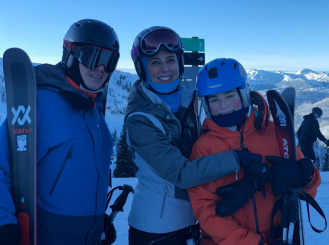Apr 27, 2020
ASCO Oncology Training Programs Committee chair; associate professor of medicine, Dana-Farber Cancer Institute; director, Dana-Farber/Partners CancerCare Fellowship in Hematology/Oncology; lymphoma specialist and medical oncologist.
What led you to hematologic oncology?
AL: Dr. Jane Desforges taught our first-year hematology course at Tufts Medical School. She was an inspiring teacher, researcher, and clinician focused on lymphoma, and I knew early on that I wanted to emulate her. I’m also a very visual person and loved hematopathology and looking at images, after having spent 5 years working in a contemporary art gallery between college and medical school. My subsequent experiences on the wards working with patients and studying the pathophysiology of these diseases solidified my decision.
What career could you see yourself in if you weren’t in hematology/oncology?
AL: I’d likely be an internist, as I love the longitudinal relationship with patients, with a role in medical education.
What’s the last book you read? What did you think of it?
AL: The Nightingale by Kristin Hannah. I loved it. Historical fiction is a wonderful escape.
What app or website do you check most often?
AL: I’m not a huge fan of social media. Sadly, it’s probably Haiku (the EPIC app).
What hobbies do you enjoy?
AL: Skiing, swimming, cycling, reading fiction, and spending time with friends and family (especially my son, Henry).
What is your personal motto?
AL: I don’t really have one, so I Googled the topic for inspiration. I like: “Just keep swimming” (courtesy of Dory from Finding Nemo).
What do you think hematologic oncology will look like 10 years from today?
AL: Less chemotherapy and more novel approaches including immunotherapy and targeted agents. Using biomarkers, we’ll be smarter at picking the best therapy for the individual patient.
What would you say to a young physician who is thinking about entering the field of hematologic oncology?
AL: Best field ever. We treat young adults and the elderly, and the variety of diseases is amazing. The advances in therapeutic options in malignant hematology are fantastic.

